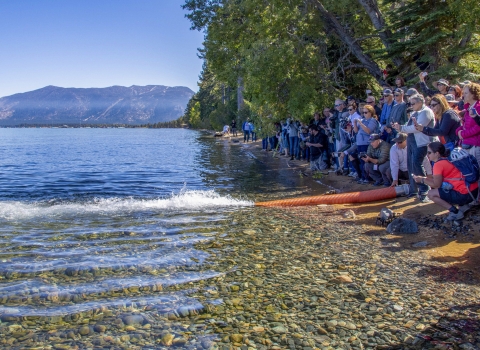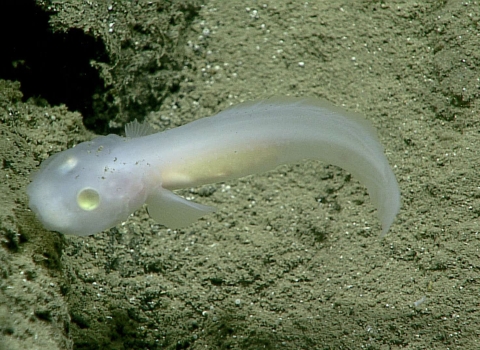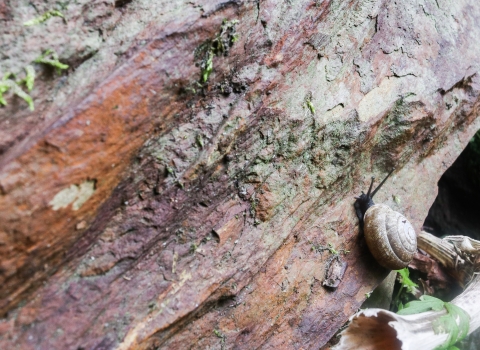WASHINGTON, D.C. – President Obama’s Fiscal Year (FY) 2017 budget request for the U.S. Fish and Wildlife Service (Service) underscores the Administration’s commitment to building partnerships, strengthening management and using science to conserve wildlife and ecosystems. It emphasizes improving the resilience of communities and wild landscapes, enabling them to better adapt to a rapidly changing environment, and uses smart investments in conservation and landscape-level planning to improve the Service’s ability to facilitate economic growth, while avoiding and mitigating the impacts on wildlife and habitat.
“This is a smart, innovative and forward-looking budget that invests in Interior’s key missions – now and in the future – so we can continue to serve the American people,” said Secretary of the Interior Sally Jewell. “The President’s budget provides targeted investments to build climate-resilient communities, revitalize public lands, and work with partners to conserve species and landscapes.”
The budget request of $1.6 billion for the Service represents an increase of $54.5 million over the FY 2016 enacted level and complements about $1.5 billion in permanent appropriations, most of which goes directly to states to support their fish and wildlife conservation and outdoor recreation programs.
“The President’s budget request will help the Fish and Wildlife Service address the most pressing challenges facing our environment and secure the long-term future of our shared wildlife heritage,” said Service Director Dan Ashe. “Perhaps most importantly, it will help us nurture the next generation of environmental stewards and ensure they have the opportunity to experience the public lands and wildlife they will one day be entrusted with protecting.”
The National Wildlife Refuge System is one of the nation’s most important conservation programs, and refuges are a critical resource for Americans nationwide as places to hunt, fish, hike, bird watch and recreate outside. Refuges are also frequently critical to the economies of local communities, supporting thousands of outdoor recreation and tourism-related jobs and businesses while working collaboratively with communities and neighboring landowners to manage the land for mutual benefit.
This budget proposes $25.2 million in additional funding for the National Wildlife Refuge System for biologists, visitor services professionals, maintenance personnel and other specialists who support wildlife and habitat management and restoration efforts, visitor services and other key functions.
An important component of the FY 2017 budget is the proposal to fully fund the Land and Water Conservation Fund (LWCF). This innovative, highly successful program reinvests royalties obtained from offshore oil and gas activities and injects them into public lands across the nation, benefiting all Americans. The Service uses LWCF monies to acquire and protect important fish, wildlife and plant habitat. Acquired lands and waters become part of the Refuge System or National Fish Hatchery System, and when acquired in fee, provide the public opportunities to hunt, fish, observe and photograph wildlife, and enjoy environmental education and interpretation.
The President’s budget includes $137.6 million for refuge land acquisition, including $58.7 million in current funding and $79 million in proposed permanent funding, an increase of $69.1 million above the 2016 enacted level. These funds will secure lands or interests in lands from willing sellers, as well as develop conservation easements with farmers, ranchers and other private landowners to keep working families on the land, improving its productivity and benefiting thousands of native plant and wildlife species.
Included in the President’s funding proposal for refuges is a $5.5 million increase for the Urban Wildlife Conservation Program, an initiative that expands opportunities for city residents to get the most out of nearby refuges and access wild places. Wider opportunities to experience nature will help improve the health and well-being of urban families and children. The Urban Wildlife Conservation Program is helping urban youth cultivate a personal connection with nature, developing a new generation of American hunters, anglers, wildlife photographers, environmental educators and other citizens who understand the importance of natural systems.
In recent years, infrastructure at national wildlife refuges, national fish hatcheries and other facilities managed by the Service has deteriorated. Investing in and appropriately managing deferred maintenance is a Service priority to ensure completion of needed repairs and prevent further deterioration and unsafe conditions at these facilities. The budget requests $59.4 million to improve the Service’s maintenance backlog and take care of the investments in facilities and infrastructure the American public has made. This includes an increase of $6.1 million over the FY 2016 enacted level with $3 million for fish hatchery deferred maintenance, $500,000 for refuge deferred maintenance and $2.6 million for maintenance at the National Conservation Training Center in Shepherdstown, WV.
The budget also requests $106 million for grant programs, including the State and Tribal Wildlife Grants and the North American Wetlands Conservation Fund, which support wildlife conservation and outdoor recreation opportunities. The Service’s grant programs leverage federal resources with those of state and local governments, tribes, and private entities and are critical to conserving the nation’s resources.
The President’s budget request includes $65.9 million – an increase of $9.5 million above the 2016 enacted level – to enable the Service and its partners to better understand complex environmental challenges, such as climate change climate change
Climate change includes both global warming driven by human-induced emissions of greenhouse gases and the resulting large-scale shifts in weather patterns. Though there have been previous periods of climatic change, since the mid-20th century humans have had an unprecedented impact on Earth's climate system and caused change on a global scale.
Learn more about climate change , and improve the ability of communities and landscapes to adapt to these challenges. The funding will support a nationwide network of 22 Landscape Conservation Cooperatives (LCCs), through which the Service, other federal agencies, state and local governments, tribes, and non-governmental groups work together to determine how to use limited resources to most effectively conserve populations of fish, wildlife and plants at landscape scales. A recent analysis by the National Academy of Sciences found that LCCs “address landscape conservation needs at a national scale, for all natural and cultural resources, in a way that bridges research and management efforts,” and this budget enables FWS to continue leveraging efforts of diverse partners at a much greater scale than any one entity could achieve alone.
The President’s budget calls for an additional $3 million for review of restoration projects in the Gulf of Mexico funded by the Deepwater Horizon oil spill settlement. The Service serves as a key federal agency that strategically connects restoration efforts throughout the Gulf watershed and addresses existing conservation issues with proposed projects to help guide and prioritize restoration efforts across the area, maximizing the return on investment for the American public.
The proposed budget includes an additional $3.6 million for the agency’s Ecological Services program to fund planning and consultation that supports economic recovery and job creation in the United States. Proposed infrastructure, real estate and other development projects contribute to job creation and economic growth. Timely evaluation ensures projects avoid or minimize impacts to native wildlife and habitat to the greatest degree possible. This funding increase will allow the Service to expedite project reviews and work with developers on appropriate mitigation and avoidance measures.
Notably, the President’s budget proposes an increase of $2 million to help the Service and its partners conserve pollinators. Without the assistance of these insects, birds and bats, most plants cannot produce the fruits and seeds that are vital for people and wildlife and critical for our agricultural economy. These funds would target habitat restoration and enhancement projects to benefit pollinators, such as the treasured but struggling monarch butterfly, inventory and monitor key pollinator populations, and provide education about pollinator conservation.
The President’s FY17 budget request of $13.4 billion for the Department of the Interior reflects his commitment to conserve vital landscapes across the nation, support national parks and refuges, meet federal trust responsibilities to Native Americans, and responsibly manage energy development on public lands and offshore areas. The Budget in Brief is online: www.doi.gov/budget and www.doi.gov/budget/2017/Hilites/toc.html.
The Service’s complete budget is at www.fws.gov/budget/2016/FY2017_FWS_Greenbook.pdf.



